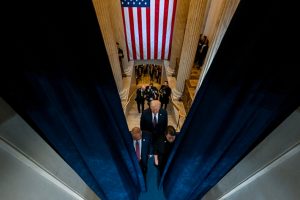Ark boss urges transformation as Fed Governor Lael Brainard warns US against falling behind in digital currency race
Solar energy could offset the environmental harm of mining cryptocurrency, according to maverick fund manager Cathie Wood.
The value of bitcoin, the world’s largest cryptocurrency, has dropped nearly 30% this month due in part to concerns over its negative environmental effects.
While mining crypto using coal-fired energy in places like China’s Inner Mongolia was commonplace until a crackdown there this year, Tesla founder Elon Musk drew attention to the polluting aspects in a May 13 tweet.
He said the electric car maker would no longer accept bitcoin as a form of payment due to the “insane” amount of energy used to produce it.
ENCOURAGE ACCELERATION
But Wood, Ark Invest chief executive, said in an appearance at Coindesk’s Consensus 2021 conference that bitcoin miners switching to renewable energy sources “will encourage an acceleration in the adoption of renewables”.
That could make the solar industry more attractive, Wood said. Ark does not invest in solar stocks because it is not clear that the industry could be profitable within five years without subsidies, she said.
“We have not really been able to say that in a big way about solar, this dynamic might change that. So I’m actually quite excited about it,” Wood said.
Solar stocks are badly underperforming the broad stock market after rallying last year. The Invesco Solar ETF, for example, is down nearly 23% for the year to date, while the benchmark S&P 500 index is up nearly 12%.
HOUSEHOLD NAME
Wood, whose Ark Innovation ETF was the best-performing US equity fund in 2020, became a household name last year through her outsized bets on stocks that thrived during the pandemic such as Zoom Video Communications and Tesla.
At the same conference, high-profile Federal Reserve Governor Lael Brainard warned that the US cannot afford to fall behind in the race to establish a central bank digital currency (CBDC).
Brainard said she was concerned by the both the growth of private stablecoins and the reality that other countries are far ahead of the US in creating a CBDC.
Private stablecoins like Tether, USD Coin, and the forthcoming Libra got a big step up late last year, when then-Comptroller of the Currency Brian Brooks allowed banks to use stablecoins to settle transactions.
ECONOMIC INFLUENCE
Along with exposing consumers and businesses to risk, Brainard warned of a threat to the dollar’s position as the world’s reserve currency, which brings enormous economic influence. “Unlike central bank fiat currencies, stablecoins do not have legal tender status,’
“If widely adopted, stablecoins could serve as the basis of an alternative payments system oriented around new private forms of money,” Brainard said.
Brainard highlighted the financial risks that could arise if the digital currency universe becomes too fragmented and said a US CBDC could provide a safer alternative to privately issued stablecoins.
“A predominance of private monies may introduce consumer protection and financial stability risks because of their potential volatility and the risk of run-like behaviour,” she said.
With reporting by Reuters
























